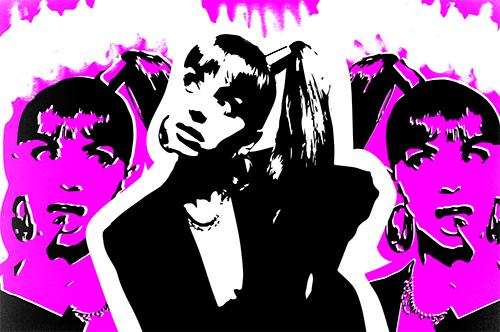How Rebecca Black and other famous figures have dealt with online hate is a reminder that celebrities are people too

Ten years after releasing her hit single “Friday” when she was 13 years old, Rebecca Black has returned to the music industry by releasing a “Friday” remix and a new single called “Girlfriend.”
During “Friday’s” peak of popularity, the song had 43 million YouTube views and 3.9 million dislikes. Those dislikes made up a 75:25 dislike to like ratio, making the single the twentieth most disliked YouTube video ever.
Sadly, the dislike to like ratio had nothing on the video’s comments and Black received millions of hateful messages, including death threats.
The hate that Black had to endure did not stop when she turned her computer off. Since the singer was only 13-years-old at the time, she faced an overwhelming amount of bullying at school and the negativity inspired Black to leave public school and begin homeschooling.
This hate also caused Black to spiral into a depression. The abuse that the teenager faced, both in school and online, caused her to shut down in order to mentally process the world around her. The death threats turned her depression into an intense fear. Being so young, Black believed, at the time, that internet trolls genuinely would harm her and that she would not survive.
At 23-years-old, Black utilizes the pain she felt as a teenager to help others.
Prior to COVID, the singer toured schools as a public speaker to educate teenagers on the symptoms and impacts of bullying. During the pandemic, Black channeled the emotional strength she gained and the lessons she learned during her mental health struggle to go back to releasing music.
“I’ve done a lot of work to heal from the more painful parts of what that experience was for me,” Black told USA Today. “I get so many comments, and it’s so surprising to me how many people have such a genuine, nostalgic love for it.”
Another musician who has actively shot back at online bullying is Post Malone. The artist is often criticized for his appearance, with people saying that he looks like he does not shower and “smells like dirty laundry and cigarettes”.
Much like how Black released the Friday remix to make light of the backlash she had received, Post Malone joked about going on Queer Eye with the show’s cast member, Karmaro Brown, in response to the rumors.
On a more serious note, 1975 lead singer Matt Healy is another musician who returned to the industry amongst dealing with mental health issues.
In 2018, the artist, who was struggling from a heroin addiction and anxiety, took two months off from performing and practicing with The 1975 to attend rehab.
Much like how Black was inspired to be honest with her audience about her struggle with mental illness, so was Healy.
“As I grow as an artist, I just want to be sincere,” Healy told Billboard Magazine about his return to the band.
Essentially, artists are just as human as everyone else. It is so easy to forget that behind money and influence, there is a person who is sensitive to the world around them or could be struggling with mental health issues.
Whether someone shrugs off hate, like Post Malone, whose hurt is caused by hate, a la Black, or whose pain does not come from criticism (i.e. Healy), it is important to use the power that social media gives us to send love artists’ way. One simple encouraging statement can make extraneous pain just a little bit easier to bear.

